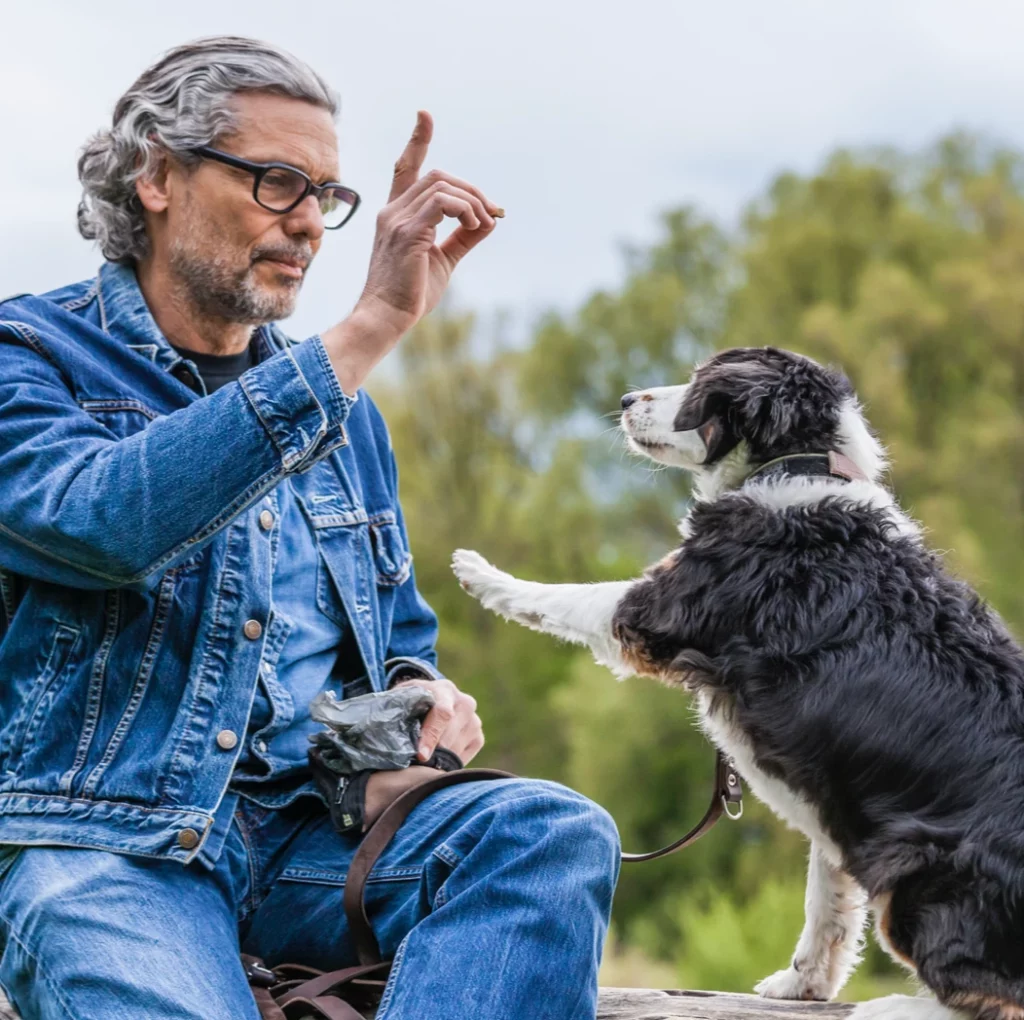We’ve all heard that you can’t teach an old dog new tricks. Is that true?
Absolutely not. Older dogs can learn new things and sometimes be easier to train than puppies because they are not as easily distracted and have longer attention spans.
Generally, it’s not the dog’s age but the age of behavior that is most relevant. This means teaching a new behavior might be pretty simple as long as it is within the dog’s physical ability, but modifying an ingrained behavior that has gone unchecked for many years could be more challenging.
Often when the parents of older dogs consider training, it’s because a new behavior has manifested itself. This could include accidents in the house and excessive barking.
Before starting any behavior modification program with an older dog, have the veterinarian give them an examination to rule out any physiological reasons for the new behavior.
Sometimes older dogs need refresher training. Remember that rewarding desirable behavior is the best way to make it stronger.
Remember that it’s never too late to speak with a professional dog trainer.
KEEPING THEM ACTIVE
As dogs get older, they can slow down and be less active. While slowing down is a normal part of aging, that doesn’t mean your dog doesn’t need to remain active and get adequate exercise. If anything, older dogs need more structured exercise because they are less inclined to move around as much independently. Here are a few tips;
We have mentioned exercise in many of the tips, and we will repeat it here. Before starting any exercise program, check with both your doctor and veterinarian.
Start slow and build up gradually. If you haven’t taken your dog for walks in a while, don’t start with a 5-mile uphill run! Instead, try a slow, steady walk for 15-20 minutes 3x per week and gradually increase the time and distance you walk together.
Be mindful of physical limitations.
The objective of exercise is to foster fitness and have fun. Most people can’t exercise at the same level at 65 as they could at 25. This is true for your dog as well.
I have walked with all of my older dogs until they were 15+ and I loved the time we spent and how emotionally and physically beneficial this activity was for both of us.
ACCIDENTS IN THE HOUSE
Rule out physical ailments with a trip to your veterinarian. This is vital as excessive defecation or urination in the house from previously house trained dogs can be signs of serious illness. Start taking the dog out to eliminate and reward the proper behavior.
Do this for a couple of weeks to a month. Assuming illness has been ruled out, and the dog isn’t taking medication that increases their desire for water, sometimes accidents can be controlled by limiting water intake at night. This doesn’t mean zero water; it simply means not an unlimited supply.
Some dogs with diminished bladder control can be taught to eliminate on a pad in the house.
EXCESSIVE BARKING
Excessive barking can be caused by confusion or stress. Determine if your dog is in pain as this can cause barking. Slightly limit the amount of space the dog has to wander in. Less space means less work watching over it and less stress. Consider a calming body wrap for older dogs that seem anxious.
Establish a consistent routine of walks and feeding, which can be calming for some dogs. Also, please make sure you touch and remind dogs with diminished sight or hearing that you are with them.

